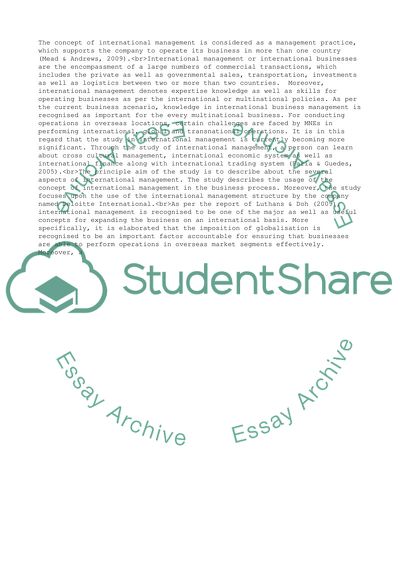Cite this document
(International Management Coursework Example | Topics and Well Written Essays - 3000 words, n.d.)
International Management Coursework Example | Topics and Well Written Essays - 3000 words. https://studentshare.org/management/1871611-international-management
International Management Coursework Example | Topics and Well Written Essays - 3000 words. https://studentshare.org/management/1871611-international-management
(International Management Coursework Example | Topics and Well Written Essays - 3000 Words)
International Management Coursework Example | Topics and Well Written Essays - 3000 Words. https://studentshare.org/management/1871611-international-management.
International Management Coursework Example | Topics and Well Written Essays - 3000 Words. https://studentshare.org/management/1871611-international-management.
“International Management Coursework Example | Topics and Well Written Essays - 3000 Words”. https://studentshare.org/management/1871611-international-management.


